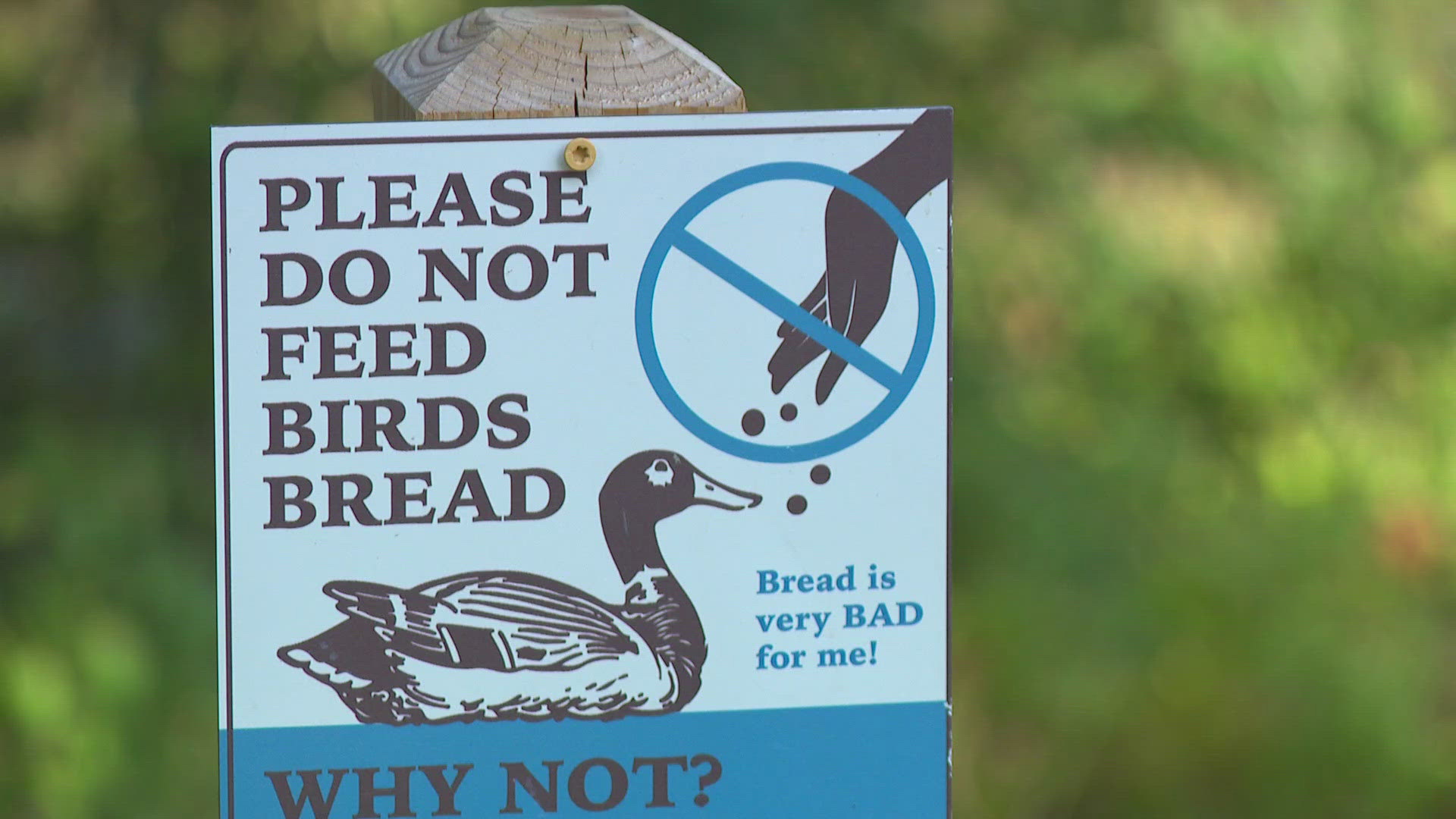PORTLAND, Maine — There are several Canada geese that dwell in Portland's Deering Oaks Park daily, and among the gaggle, there are two whose wings stick out like sore thumbs.
According to the city's supervising park ranger, Liz Collado, the two geese suffer from what's called angel wing syndrome. It's a wing malformity that causes the last joint of a bird's wing to twist—making their feathers point away from their body instead of lying flat.
The malformation commonly affects waterfowl animals, which include geese, ducks, and swans.
"These deformities exist because of an excess of carbohydrates or excess of proteins," Collado explained.
Diet, even for geese, matters.
One thing that absolutely should not be in geese, ducks, or other waterfowl animal's diet is bread, according to Collado.
For years, people have considered it normal to feed ducks and geese bread.
"I don't know who started saying let's just feed the stale bread to the ducks, but it's just been something you do," wild bird expert Derek Lovitch said.
Lovitch is the co-owner of Freeport Wild Bird Supply in Freeport.
When waterfowl consume excess carbs, their flight feathers grow rapidly. When their flight feathers grow faster than their underlying wing structures, their feathers get heavy. As a result, the feathers twist, turning the wing downwards.
Angel wing syndrome impairs waterfowl, preventing them from flying.
"Even though waterfowl at a park don't always want to fly, they may need to if an eagle comes by or if they have to get away from a vehicle or something like that," Lovitch said. "So, it puts them at severe risk, and you do see roadkill waterfowl with angel wing. And I think it's because they're less mobile. They can't just pick up and fly away."
Several signs are planted in the ground at Deering Oaks Park and other areas where Canada geese and ducks dwell, warning people not to feed them bread.
"I think when we do see a sign, we should read it and take it seriously," Portland resident Maradi Dray said. "They're there for a reason."
Despite the many warning signs, people still do it. Collado and Portland Parks and Recreation rangers are asking people to stop feeding the waterfowl altogether.
Collado said she knows this may be hard for people who have adopted the behavior as tradition, but explained that if you must feed the waterfowl, vegetation is often safe for them to eat.
Lovitch said cracked corn is cheap to buy and safe for waterfowl to eat as well.
"Maybe we have to think about geese and ducks and waterfowl like our pets and take the initiative to learn what's good for them and feed them the right thing," Lovitch said.
Lovitch added if the deformity is not corrected immediately with a splint or sling, it mineralizes into the bone, making it irreversible.

